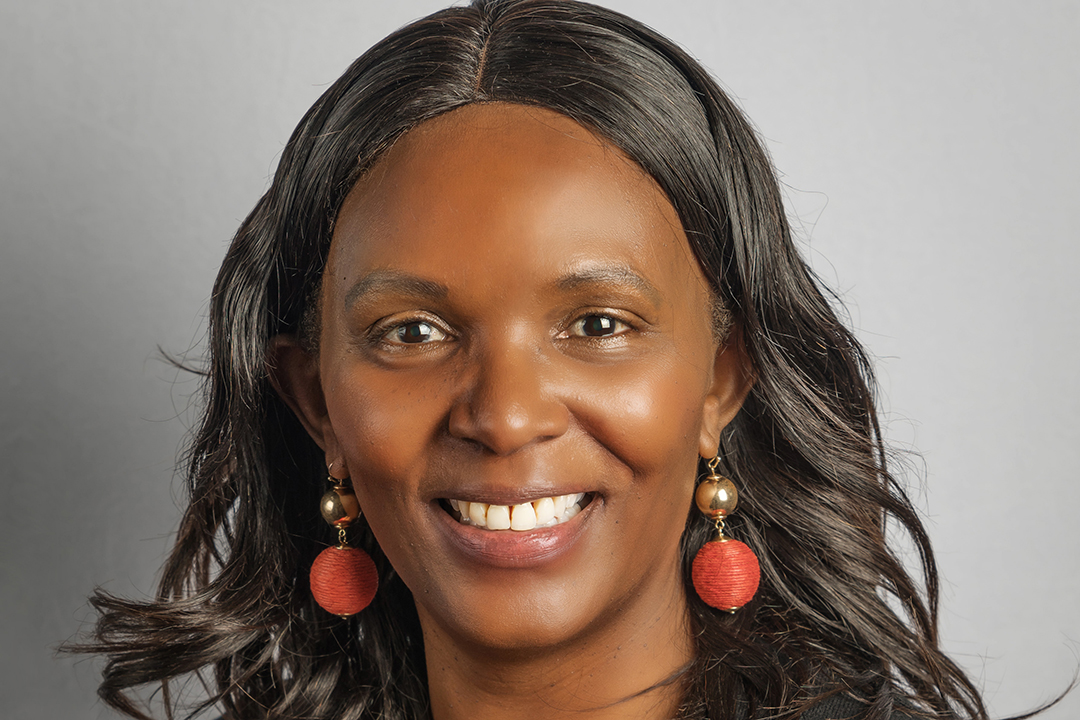
Faith Maina received her second Carnegie African Diaspora Fellowship.
Texas Tech University is partnering with researchers in Kenya to share expertise in community-engaged scholarship and help solve a youth unemployment crisis facing the African country.
Faith Maina, a professor of education at Texas Tech, traveled to Kenya earlier this year on a fellowship under the Carnegie African Diaspora Fellowship Program (CADFP) to work with the University of Nairobi on a project to get more young people adults interested in farming and agribusiness.
Agriculture is crucial to Kenya's economy, contributing about one-third of the country's gross domestic product, but few young people are attracted to the industry. A lack of money, knowledge and access to land make it difficult for them to get involved, Maina said. As a result, Kenya's population of farmers is aging, and millions of people between the ages of 15 and 24 are unable to find work.
To find a solution, the researchers are exploring innovative ways of producing inexpensive fish and poultry feeds using non-conventional protein sources such as black soldier fly larvae and tiger worm.
“Poultry and fish farming require relatively little land and are less labor intensive compared to most of the other agricultural enterprises,” Maina said. “Finding new ways to make inexpensive feed for poultry and fish can create more avenues for youth employment. This has the potential to reduce anti-social behavior associated with unemployed youth, at the same increasing food security in the region.”
Maina is sharing her expertise in community-based participatory action research (CBPAR), a collaborative research approach that involves working with community members as equal partners to identify and solve social issues through research and collective action.
In Kenya, this involves researchers working closely with young people and rural farmers. Their participation ensures that researchers are gathering quality data and offering real solutions, Maina said.
“The stakeholders, especially the youth, are engaged in the formulation, implementation and evaluation of research work,” Maina said. “This empowers them to be partners in knowledge production and utilization.”
The University of Nairobi project is among 63 initiatives recently selected for the CADFP. The program pairs African diaspora scholars with universities and collaborators in Africa for curriculum co-development, collaborative research, graduate training and mentoring activities.
"As a college of education committed to community engagement, we are delighted that Maina has been selected for the Carnegie African Diaspora Fellowship Program,” said Jesse Perez Mendez, dean of the College of Education. “Her dedication and expertise in community-engaged scholarship will be instrumental in improving opportunities for the younger generation in Kenya. Community-engaged scholarship is crucial in creating meaningful, sustainable change in partnership with local communities."
This is the second Carnegie African Diaspora Fellowship for Maina. In 2018, she collaborated with faculty from Tangaza University College, also in Nairobi, to build capacity for qualitative methodologies for doctoral students.
Maina, who was born and raised in Kenya, said it was a great honor and privilege to be selected twice.
“This award is a great reminder of the need for the African Diaspora scholars to give back to the communities that raised them and provides an avenue for intellectual remittances to the African continent,” Maina said. “For me personally, I have enjoyed the benefits of working in a different environment, which has provided me with abundant opportunities for becoming an integrated scholar as I pursue other trajectories of research in my academic career.”
CADFP, now in its 10th year, is designed to strengthen capacity at the host institutions and develop long-term, mutually beneficial collaborations between universities in Africa, the United States and Canada. It is funded by Carnegie Corporation of New York and managed by the Institute of International Education (IIE) in collaboration the Association of African Universities.
Nearly 600 Carnegie African Diaspora Fellowships have now been awarded for scholars to travel to Africa since the program's inception in 2013. Fellowships match host universities with African-born scholars and cover the expenses for project visits between 14 and 90 days, including transportation, a daily stipend and the cost of obtaining visas and health insurance.
A full list of projects, hosts and scholars is available on the fellowship program website.
